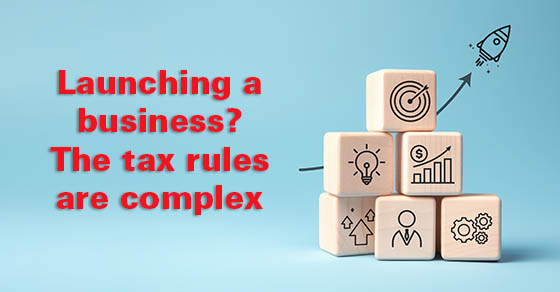
According to the U.S. Census Bureau, nearly 447,000 new business applications were filed in May 2025 alone. If you’re one of the many entrepreneurs starting a new business, understanding how your startup costs are treated for tax purposes can make a big difference in your bottom line.
At THF (Thomas Howell Ferguson CPAs), we guide new business owners through the early financial decisions that set them up for long-term success. Whether you’re in your first year or planning your launch, here’s what you need to know about startup expenses, deductions, and tax compliance.
What Is the Primary Benefit of Starting a New Business?
Beyond creative control and financial potential, one of the often-overlooked benefits is the ability to structure your business strategically for maximum tax efficiency. Working with a trusted CPA for small business can help ensure that your initial expenses, entity type, and tax elections are all optimized from day one.
As one of the best CPA firms for small business near you, THF CPAs focuses on helping founders take advantage of every opportunity from the start.
What Counts as a Startup Cost?
The IRS defines startup costs as any expenses incurred to:
- Investigate the creation or acquisition of a business,
- Create a business structure (like a partnership or corporation), or
- Prepare for a business to begin active operations.
Typical startup costs include:
- Market research and product analysis
- Legal fees for incorporation
- Accounting or consulting fees
- State and federal filing fees
These costs must be directly related to launching your business with the intent to make a profit.
How Much Can You Deduct?
Under current tax law, you may elect to deduct:
- Up to $5,000 in startup costs
- Up to $5,000 in organizational costs
in the year your business actively begins operations
💡 Important: These deductions are reduced dollar-for-dollar if your total startup or organizational costs exceed $50,000. Any remaining balance must be amortized (spread out) over 15 years (180 months).
This means that careful planning and documentation are essential. At THF, we help founders keep clear records and make the right elections to reduce their first-year tax liability.
When Can You Start Deducting Expenses?
You can’t deduct or amortize any startup expenses until your business has started its “active conduct.” In plain terms, this means:
- Your business is ready to generate revenue
- You are actively and regularly engaged in the business
- You are pursuing profit, not just hobby income
- Examples of qualifying activities include launching a website, hiring staff, opening to the public, or completing your first sale or service.
Why You Should Plan Ahead with a CPA
If you’re starting a new venture and want to make the most of your startup deductions, proactive tax planning is key. Working with a CPA for small business like THF CPAs ensures you:
- Capture every deductible expense
- File IRS elections correctly and on time
- Avoid common audit triggers or compliance issues
- Set up your chart of accounts for clean recordkeeping
Starting off with expert guidance can save you thousands and give you peace of mind during your first tax season.
Let THF CPAs Help You Launch with Confidence
At Thomas Howell Ferguson CPAs, we help entrepreneurs and startups navigate the tax complexities of their first year and beyond. Whether you’re searching for the best CPA for small business near me or need help making your startup tax-efficient, we’re ready to support you.
📞 Ready to get started? Contact us today or visit www.THF.cpa to schedule a consultation with a THF advisor.

